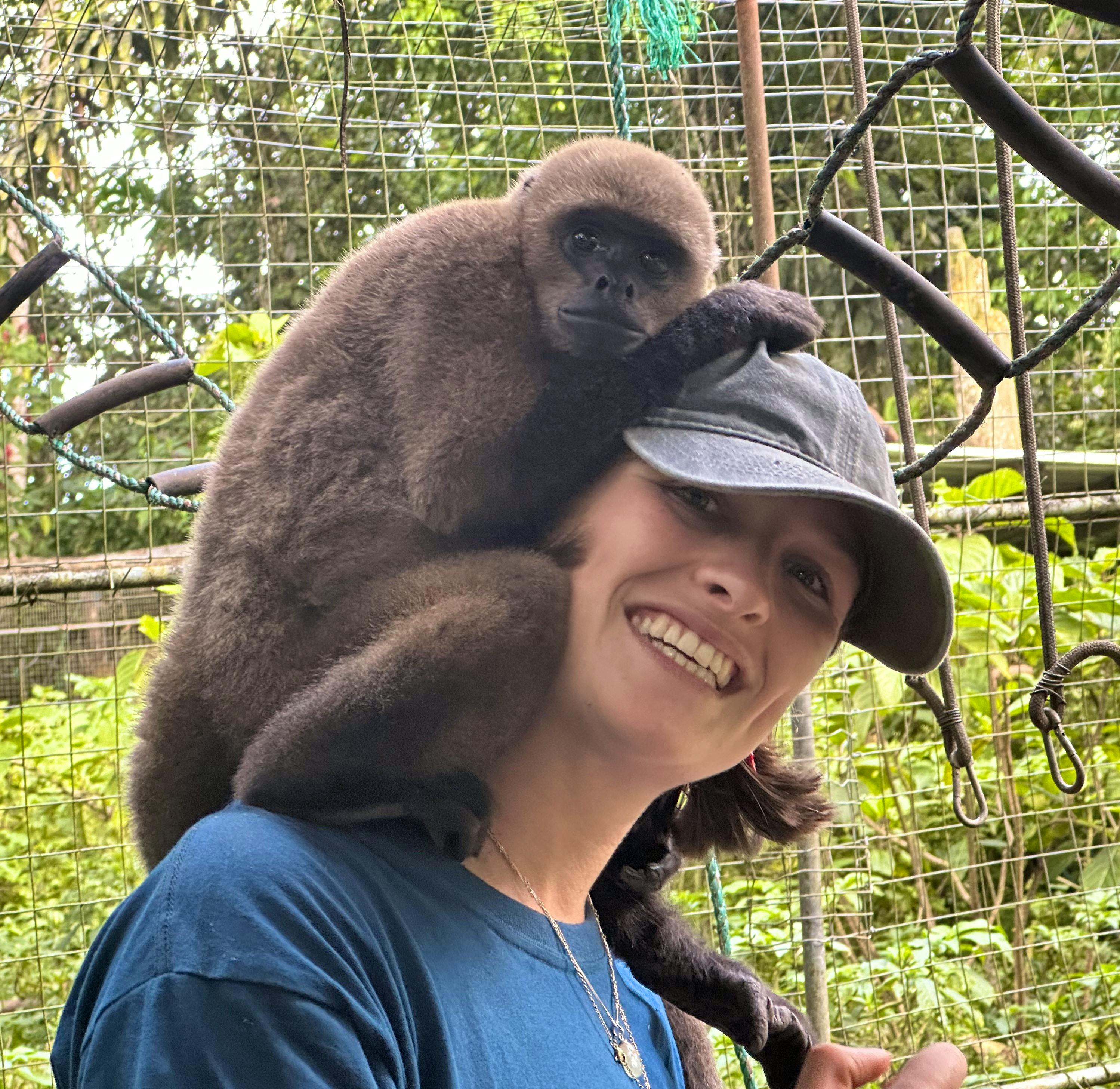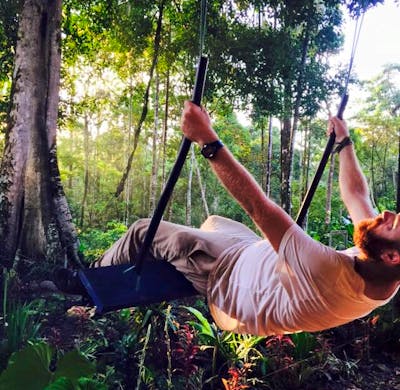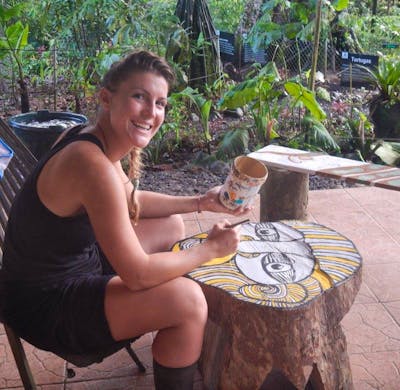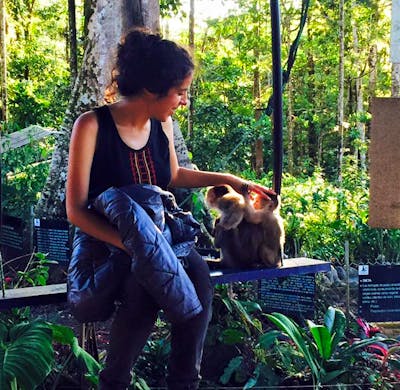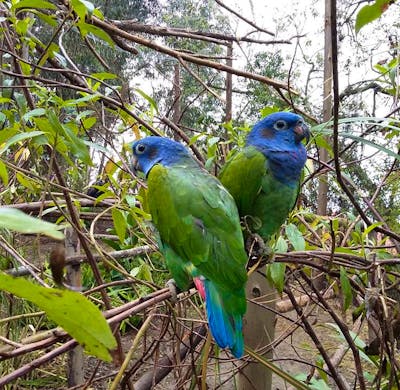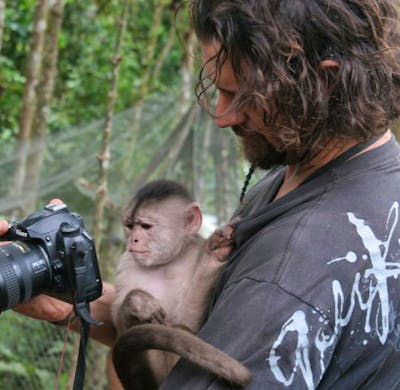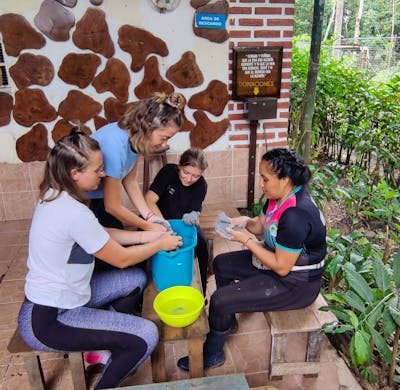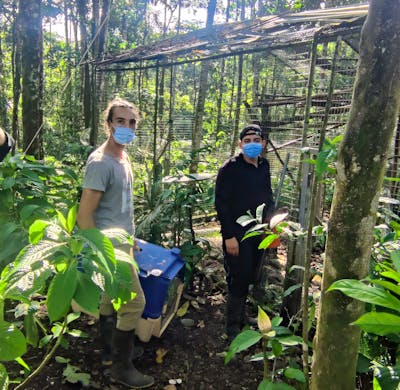Los Monos, Selva y Vida Foundation is a Swiss-Ecuadorian non-profit organization created in 2005 by Yvan Bouvier and Veronique Grand in order to protect wildlife and the indigenous traditions of the Ecuadorian Amazon Rainforest.
The future of the forest and its inhabitants are our greatest concern. The current government is exploiting the natural resources in an unsustainable way. In Ecuador, the deforestation and extractivism endanger the survival of the Amazon while the government continues its activities without any management plan to protect the affected flora and fauna. The massive exploitation of natural resources leaves the animals vulnerable to hunting, habitat fragmentation and pollution.
Wildlife shelter “Paseo de los Monos” opened in 2007 in order to serve as a refuge for wild animals in the province of Pastaza. In our sanctuary, we harbor more than 200 animals who became orphaned or badly injured due to illegal trafficking. We give shelter to many specimens which include primates, procyonids, reptiles, felines, parrots and other large and medium mammals.
Ecuador is one of the richest countries in the world in terms of biodiversity and its forests shelters to thousands of species that will dissapear if we don’t act now to protect them. For this reason, the team of Paseo de los Monos invites the national and international public to become part of the change and participate in our activities for wildlife´s conservation.
We are planning to expand Paseo de los Monos in order to have the capacity to receive and help more animals. Our biggest concern is that we do not receive any help from the government or from local authorities as we do from international help.
We offer people from all over the world volunteering opportunities involving many different activities. The experience for our volunteers is life changing!
The Animals
Paseo de los Monos operates inside one hectare of native jungle located at ten minutes from the town of Puyo in the province of Pastaza. The animals arrived here usually are sick or injured and they need veterinary assistance as well as psychological help. The recovered animals are ready to join a family group inside the refuge. If possible, we proceed to liberate the specimen into protected areas with the help of the Ministerio del Ambiente, the environmental authority of Ecuador.
Current Projects
Rescuing wild animals who live in bad conditions inside Zoo institutions
In Ecuador many zoos do not respect the basic animal welfare standards while they are still legally operating, they become a threat to our biodiversity. Our goal is to rescue and offer these animals better living conditions. For this reason, Paseo de los Monos invests in infrastructure and food for the specimens who have to suffer the mistreatment inside zoos. Among these animals, it is very common to receive kinkajous, olingos, nocturnes and other animals with mutilations. Since these irresponsible institutions cannot profit out of these type of animals, they do not give them any care or veterinary assistance, leaving them to die in sad ways.
Extension of the project Paseo de los Monos
Biodiversity needs to be protected as an important genetic resource that will allow to restock devastated areas in the future. To achieve this goal, Los Monos team is working to acquire a patch of primary forest located in the edges of Sangay National Park in the Ecuadorian jungle. This project intends to gather local and international investors, scientists, veterinarians and biologists who can help us get the land and build the necessary infrastructure needed to rehabilitate and release the rescued specimens.
Organic garden
So far we buy the animal´s food at a very high cost in the local market. We need to buy one hectare of land near Paseo de los Monos in order to grow our own vegetables and fruits for human and animal consumption. This project will allow us to control the quality of our products and to reduce running costs.
Discover
Paseo de los Monos: A view of wild animals in the middle of a botanical garden
In the middle of a dense tropical vegetation, we offer ecological and colourful trails with native forest that invites you to take a walk in nature. You can observe and photograph monkeys and coatis walking through the trees, birds in the search of food, hummingbirds pollinating flowers, butterflies, turtles, frogs and a variety of ants and insects. As you pass by the Peccari´s park, you will be followed by the spider monkeys who are walking the arboreal tunnels until the river Chilcayacu, a tributary of River Puyo. The river is clean and clear which permits our visitors to cool down and relax in the middle of the jungle as in a natural spa.
Tours in the jungle
We organize trips in the jungle from one to four days for visiting the indigenous communities. You will be taken to a beautiful walk into the jungle until a sacred fall where you can swim. Later, on your visit to the Shuar community, you will drink chicha (traditional drink) and enjoy the delicious maito. There is the option to navigate the great river Puyo and get to the highest viewpoint where you can admire the huge Pastaza River bordered by an impenetrable jungle.
We collaborate with a professional tourist agency Native Jungle Tours that provides us with professional guides.
Shamanism and healing
Here in Amazonia we are in close contact with real indigenous healers and shamans with international reputation. They are capable of curing diseases when western medicine is powerless. If you know a person in this situation, do not hesitate to make contact with us.
Ayahuasca
In Paseo de los Monos we organize Ayahuasca or Yage ceremonies. This traditional and ancient medicinal drink of the Amazonian culture is meant for people who want to know more of the deep self. It is also used to solve inherited problems, analyse particular situations in a close encounter with Nature.
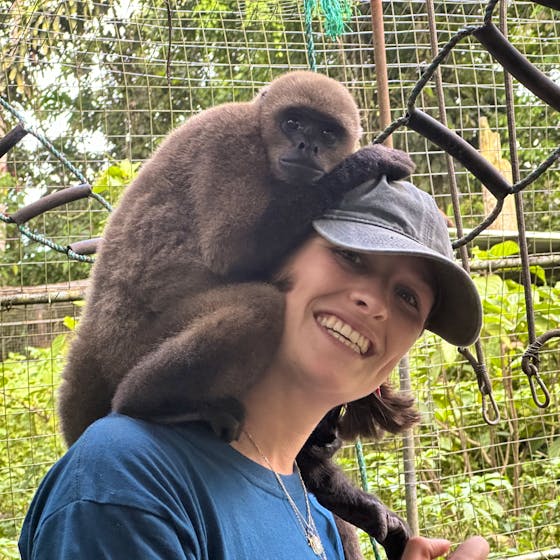
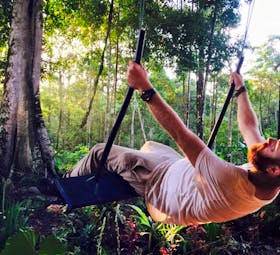
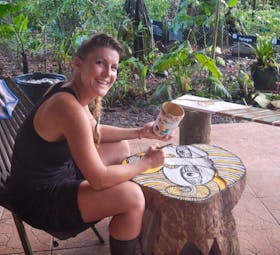
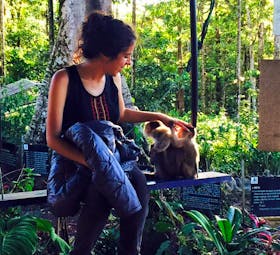
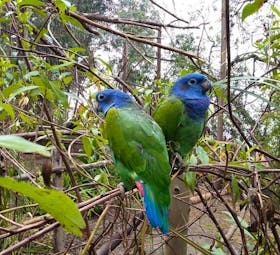
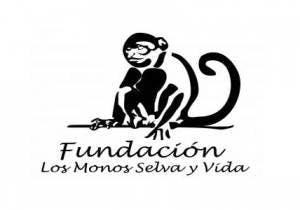
 4.6
4.6

